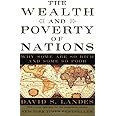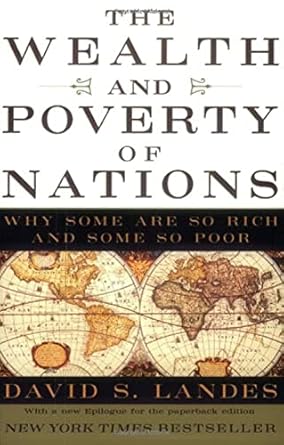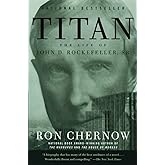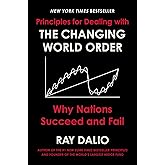
Enjoy fast, free delivery, exclusive deals, and award-winning movies & TV shows with Prime
Try Prime
and start saving today with fast, free delivery
Amazon Prime includes:
Fast, FREE Delivery is available to Prime members. To join, select "Try Amazon Prime and start saving today with Fast, FREE Delivery" below the Add to Cart button.
Amazon Prime members enjoy:- Cardmembers earn 5% Back at Amazon.com with a Prime Credit Card.
- Unlimited Free Two-Day Delivery
- Streaming of thousands of movies and TV shows with limited ads on Prime Video.
- A Kindle book to borrow for free each month - with no due dates
- Listen to over 2 million songs and hundreds of playlists
- Unlimited photo storage with anywhere access
Important: Your credit card will NOT be charged when you start your free trial or if you cancel during the trial period. If you're happy with Amazon Prime, do nothing. At the end of the free trial, your membership will automatically upgrade to a monthly membership.
Buy new:
-42% $14.40$14.40
Ships from: Amazon.com Sold by: Amazon.com
Save with Used - Acceptable
$9.56$9.56
Ships from: Amazon Sold by: Murfbooks

Download the free Kindle app and start reading Kindle books instantly on your smartphone, tablet, or computer - no Kindle device required.
Read instantly on your browser with Kindle for Web.
Using your mobile phone camera - scan the code below and download the Kindle app.

OK
 Audible sample Sample
Audible sample Sample 


The Wealth and Poverty of Nations: Why Some Are So Rich and Some So Poor First Edition
Purchase options and add-ons
New York Times Bestseller
"Readers cannot but be provoked and stimulated by this splendidly iconoclastic and refreshing book." ―Andrew Porter, New York Times Book Review
The Wealth and Poverty of Nations is David S. Landes's acclaimed, best-selling exploration of one of the most contentious and hotly debated questions of our time: Why do some nations achieve economic success while others remain mired in poverty? The answer, as Landes definitively illustrates, is a complex interplay of cultural mores and historical circumstance. Rich with anecdotal evidence, piercing analysis, and a truly astonishing range of erudition, The Wealth and Poverty of Nations is a "picture of enormous sweep and brilliant insight" (Kenneth Arrow) as well as one of the most audaciously ambitious works of history in decades.
- ISBN-100393318885
- ISBN-13978-0393318883
- EditionFirst Edition
- PublisherW. W. Norton & Company
- Publication dateMay 17, 1999
- LanguageEnglish
- Dimensions6.1 x 1.3 x 9.3 inches
- Print length658 pages
Books with Buzz
Discover the latest buzz-worthy books, from mysteries and romance to humor and nonfiction. Explore more
Frequently bought together

Similar items that may ship from close to you
Editorial Reviews
Review
― Eric Hobsbawm, Los Angeles Times
"Mr. Landes writes with verve and gusto…This is indeed good history."
― Douglass C. North, Wall Street Journal
"You cannot even begin to think about problems of economic development and convergence without knowing the story that Landes tells…I know of no better place to start thinking about the wealth and poverty of nations."
― J. Bradford DeLong, Washington Post
"Truly wonderful. No question that this will establish David Landes as preeminent in his field and in his time."
― John Kenneth Galbraith
"A masterly survey…with verve, broad vision, and a whole series of sharp opinions that he is not shy about stating plainly."
― Robert Solow
"A picture of enormous sweep and brilliant insight…embodied in a light and vigorous prose which carries the reader along irresistibly."
― Kenneth Arrow
"Enormously erudite and provocative…Never less than scintillating, witty, and brilliant."
― Kirkus Reviews
About the Author
Product details
- Publisher : W. W. Norton & Company; First Edition (May 17, 1999)
- Language : English
- Paperback : 658 pages
- ISBN-10 : 0393318885
- ISBN-13 : 978-0393318883
- Item Weight : 1.9 pounds
- Dimensions : 6.1 x 1.3 x 9.3 inches
- Best Sellers Rank: #70,910 in Books (See Top 100 in Books)
- #17 in Development & Growth Economics (Books)
- #72 in Theory of Economics
- #148 in Economic History (Books)
- Customer Reviews:
About the author

Discover more of the author’s books, see similar authors, read author blogs and more
Customer reviews
Customer Reviews, including Product Star Ratings help customers to learn more about the product and decide whether it is the right product for them.
To calculate the overall star rating and percentage breakdown by star, we don’t use a simple average. Instead, our system considers things like how recent a review is and if the reviewer bought the item on Amazon. It also analyzed reviews to verify trustworthiness.
Learn more how customers reviews work on Amazon-
Top reviews
Top reviews from the United States
There was a problem filtering reviews right now. Please try again later.
I read the book from cover to cover; then, as soon as I got to the end, I went back to the beginning and chewed through it a second time. My teen-age son, seeing all the marginal notes, wondered what I was up to, and his twin sister asked if I were studying for a quiz. The author takes you on a spectacular trip all over the world, digging into the birth of industrialism starting with water and wind power, then going into the clocks, files, tools, watches, math, looms and finally bursting forth into the steel making and manufacturing that brought wealth and power to Britain, the west in general and the USA in particular. What was thrilling about all this was the nitty gritty detail he goes into for each exploration, and I could just see him down on his hands and knees looking at the underside of a spinning jenny to see how it worked. Probably tried throwing the shuttle, too, or even making cloth. And when he was standing "inside the womb of the Industrial Revolution," I could actually see the pitted, baked bricks of that abandoned blast furnace, now a tourist museum in Coalbrooksdale. He really gets into things and that's what gives the history its punch. All the lessons can be taken to the abstract precisely because so much of the work is concrete and easy to read, which is probably why a lot of academicians don't like it.
Through his powerful lens I see, alas, what we have lost and continue to lose. We seem to be going the way of 16th & 17th C. Spain, buying the goods of others and forgetting how to make anything ourselves. I read smug economists who actually believe we are getting the best of China by trading our green paper money for goods made in China -- while ignoring the fact that when we put Americans out of work they lose their valuable skills, which then go to the Chinese who not only accumulate money but what is even more dangerous they learn our technologies quickly and at no cost to themselves. Can it ever be wise to enrich and arm a large potential enemy? I consider them an enemy not so much because they call themselves Communists, but because their aggressive form of totalitarian capitalism is pure Fascism. This is the state Mussolini had in mind but failed to pull off.
This book contains not only lessons but solutions to anyone who wants to see them. It should be required reading for every political candidate from dog catcher to President.
I salute the author for a job well done.
It is by the nature of such a book to be controversial, and Landes doesn't pull his punches; his approach is neoclassicist, although hardly a dogmatic one. He is rough on Postmodernists, Saidian Anti-Orientalists, French and Japanese protectionists, Spanish Roman Catholics, and many others. Among the reviews you'll read here, Landes irritates Catholics, third world enthusiasts, anti-Western intellectuals, extreme right wind Capitalists, anti-Japanese, and so on, and so on.
So, you've got controversy. But what is Landes actually saying? Well, in brief, Landes book focuses on three major reasons for Wealth/Poverty: Geography, Infrastructure, and Culture.
The discussion of Geography, early in the book, is at best half hearted. Some of the points seem valid - but you're always inclined to say 'On the other hand'. Are there really fewer diseases in Europe then in Africa? maybe, but transportation is easier. The black death annihilated a third of the European population in the 13th century. Does Heat makes labour harder and less efficient? I guess the builders of the Pyramids haven't heard Landes's thesis - or maybe hardships can be overcomming with whipping.
The best parts of the book deal with Infrastructure. In these, Landes has three main themes: Freedom, Capitalism and Science (Or, if you wish, Anarchy, Greed and Heresy).
Freedom allows people to do things. Landes portrayal of the centrally planned economies of ancient China, where the Emperor ruled everything, is powerful, and it seems to play a large role in the lack of initiative in China, despite the great achievements.
Capitalism, most noticeably in the form of Greed and Competition, drives people forward. Again, Landes comparison between the Chinese and the European Sea quests are enlightening. Europeans went in small ships, eager to outdo the competition and to come back making a fortune. The Chinese went with huge Ships, symbols of the empire rather than instruments of trade. They were unprofitable, victims of the ruler's whim, and, without a strong faction of interested merchants, had no chance of continuing throughout. Also interesting is that Europeans went looking for India and spices, while China was self-sufficient.
Science - Chinese science was much more sophisticated than European science back in the year 1,000. The Indians have invented the zero. But nowhere except in Europe did science work methodically, nowhere else was it progressive. Newton is famous of saying that he stood on the shoulder of giants - discoveries in China and the rest of the world were rarely followed up - gunpowder was discovered in China much before it was in Europe, but the Chinese never used it for weapons. In Europe, it became part of the war methods almost immediately. Landes discussions of clocks and glasses are particularly telling.
The Third Element - Culture - is the one with which I have the most trouble. Landes repeatedly attacks economists for discounting culture (for example in the last chapter, page 517 in my edition). He claims that they disregard it because it can't be quantified. Wrong. The reason Economists distrust culture is because it is such a 'one size fits all' argument. Japanese responds to the west was everything the Chinese should have done but didn't. ... Culture. Arab nations are stuck well behind everyone else, despite the great advantage they have in the shape of oil. ... Culture. Asians manage to pull themselves along, while most of the third worlders can't. ... Well, culture, again.
I'm not saying that Culture plays no part. Obviously it does. But it becomes an obstacle to understanding, and Landes can support it only with anecdotal evidence (a lovely and touching story of a Japanese woman), and unanswered question (Is Islam a cause for the suppression of women? maybe).
Despite this problem, this is a fascinating book. Yes, it is a little too pro-Western. The problem is really more one of emphasis than one of facts - in my view, Landes is pretty close the mark usually, but he much underestimates the responsibility of the West for African poverty. Something's are left relatively unexplained - the current fast rise of China, which might undertake the point Landes made about the vitality of Freedom
But ultimately, as Landes acknowledges, no one book can solve the question of poverty and wealth. The answer is necessarily multi-faceted. 'The Wealth and Poverty of Nations' (neat name, also) is a well-written and intelligent treatment of the question.
















